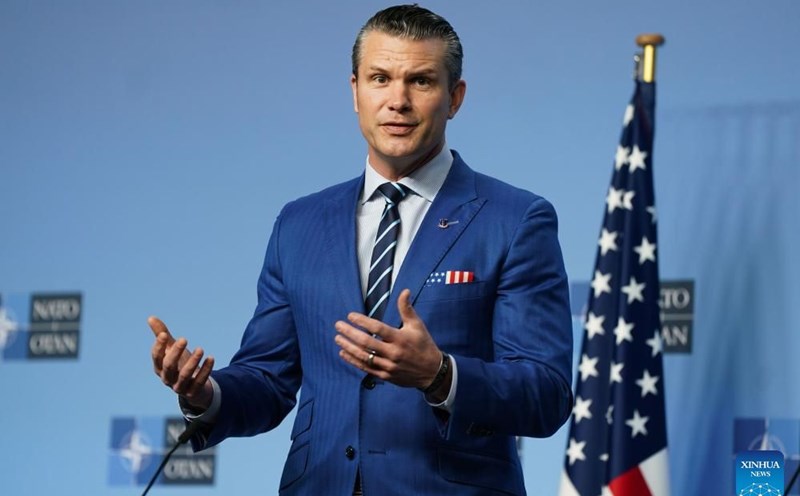Senior US and Chinese officials will hold a meeting in Geneva, Switzerland on May 10, according to a statement from Washington. This is considered the first step to reduce tensions in the trade war that is disrupting the global economy.
US Treasury Secretary Scott Bessent and head of the Jamieson Greer trade delegation will represent the US side at the meeting with China's top economic representative. Although Washington has not confirmed the specific identities of the officials attending from Beijing, Deputy Prime Minister He Lap Phong - who is considered China's "economic commander" - is likely to lead the Chinese delegation, Reuters reported.
Information about the meeting has caused the financial market to react positively, with the S&P 500 futures contract increasing by about 1% after two consecutive sessions of decline due to concerns about US President Donald Trump's tariff policies.
Mr. Bessent, in a TV interview, said: "We need to reduce the escalation of stress before we can move forward". However, US authorities do not call this the beginning of an official round of negotiations. Instead, the meeting was seen as an attempt to "break the ice" after a long period of tension.
China confirmed that it has agreed to restart the dialogue with the US, after considering global interests, national interests and reflections from US industry and consumers. However, China has warned that it will not accept any form of "forced release or blackmail" under the guise of dialogue.
President Trump is conducting trade talks with 17 major partners, including China. He said he will consider a series of trade agreements in the next 2 weeks to decide to sign. Meanwhile, partners such as the European Union are also preparing response measures if they cannot reach an agreement with the US.
Since the start of his second term in January, Trump has imposed tariffs of up to 145% on imports from China, in response to unfair trade practices and the fentanyl crisis. China responds with a tax rate of 125%. Minister Bessent warned that these tariffs are unsustainable and are effectively a trade embargo between the world's two largest economies.
The latest statistics show that the US trade deficit continues to increase, although the deficit with China has decreased sharply due to the impact of taxes. In the first quarter of 2025, US domestic product fell for the first time in three years, partly due to strong increases in imports to avoid being taxed - especially in the pharmaceutical industry.
This meeting in Geneva, although not a breakthrough, is still expected to be a positive signal in efforts to reduce tensions between the world's two leading economic powers.











